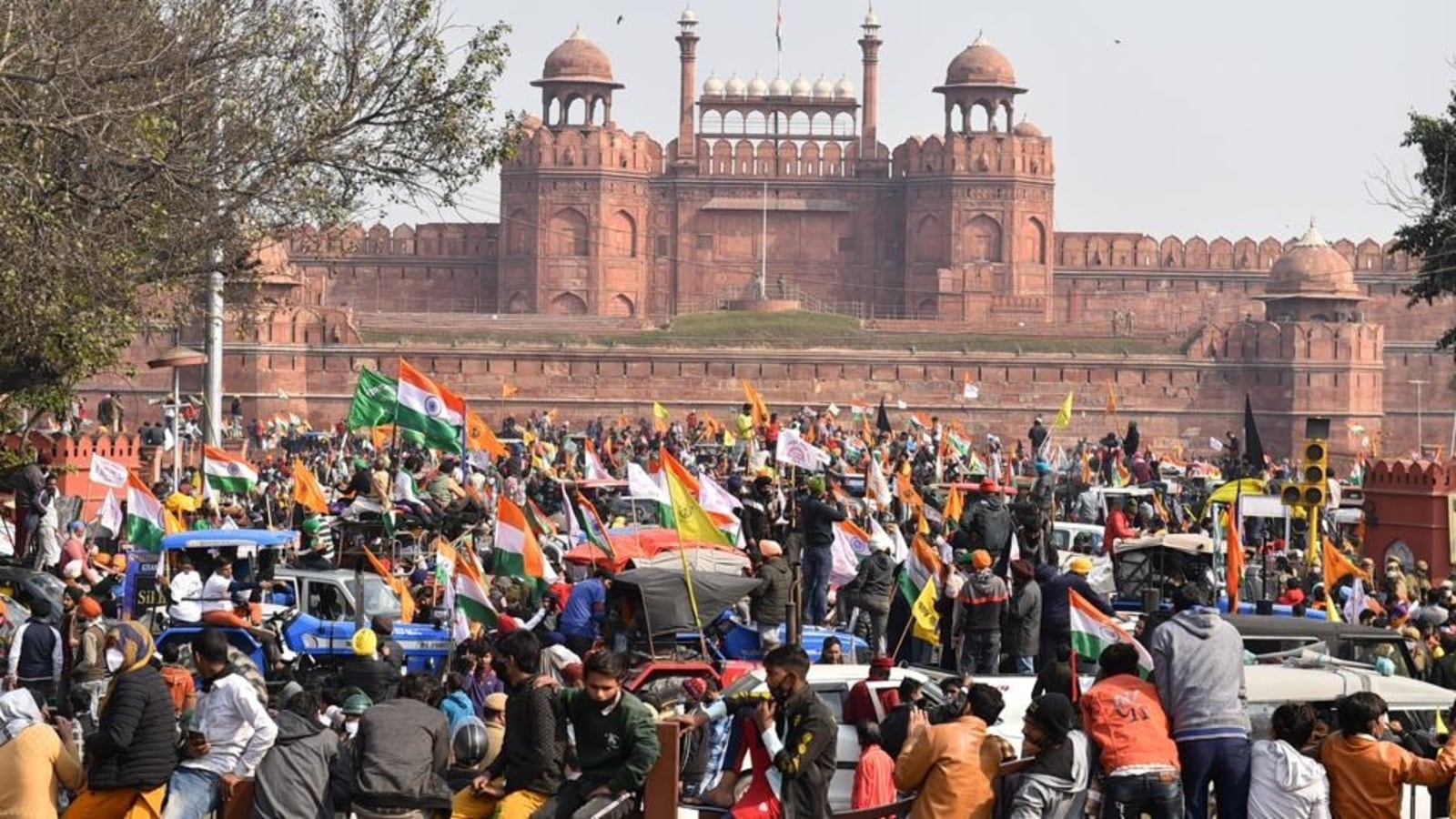
- Select a language for the TTS:
- UK English Female
- UK English Male
- US English Female
- US English Male
- Australian Female
- Australian Male
- Language selected: (auto detect) - EN
Play all audios:
WITH ITS INACTION, THE CULPABILITY OF INDIA’S POLITICAL OPPOSITION ByRoshan Kishore Jan 28, 2021 04:57 AM IST THE INABILITY OF INDIA’S CURRENT PARLIAMENTARY OPPOSITION TO COMMAND THE
POLITICAL LEADERSHIP OF SUCH STRUGGLES IS MORE A RESULT OF POLITICAL WEAKNESS THAN SINISTER DESIGN. BUT IS IT EVEN TRYING TO ENGAGE WITH POPULAR MOVEMENTS? Images of farmers, in their
tractors, clashing with the Delhi police at Red Fort, far beyond the designated routes for their march, are unlikely to fade from public memory. There is little doubt that what transpired on
January 26 will inflict serious damage to the popular support for the ongoing agitation that had, until then, displayed remarkable discipline with the two-month-long peaceful sit-in at
Delhi’s borders. The script that has played out is not very different from what transpired in Delhi exactly a year ago. Shaheen Bagh emerged as a powerful “Occupy” movement against the
Citizenship (Amendment) Act (CAA). It inspired similar sit-ins across the country and altercation over one such protest in Delhi precipitated what were the most horrific riots in the
National Capital in three-and-a-half decades. The reactions to both these chain of events have been on expected lines. Those who support the Bharatiya Janata Party (BJP) argue that these
movements have always been a smokescreen for anarchic and violent elements, which aim to disturb peace to undermine the government. Their opponents claim that events which turn violent are
engineered by State and non-State actors closer to the BJP — with the blame then deflected on to protesters to erode the legitimacy of the movement. Irrespective of the merits of the
argument, these developments are creating a dangerous schism in society. The majority believes that the State is justified in using its might to crush such protests, while a significant
minority is developing a deep persecution complex. This is dangerous for any democracy. But there is a missing actor in this story — India’s parliamentary Opposition. Not only has its
conduct been half-hearted in building parliamentary opposition to legislations — remember, the BJP still does not have a majority in the Rajya Sabha — it has shown, at best, a token presence
in the extra-parliamentary struggles on such issues. Neither the Shaheen Bagh sit-in nor the farm protests were led by political parties. Many celebrate the non-political nature of these
protests and have described them as some sort of new wave of democratic, even revolutionary, upsurge. Such proclamations have rhetorical value but protests by non-established leaders leave
an important political vacuum — the question of accountability. Is it fair to blame the Shaheen Bagh protesters for the spontaneous sit-in in another part of Delhi the night before communal
riots erupted in the capital? Should the team of farmers, which had been negotiating with the government, be held responsible for the events of January 26? And if one cannot control the
actions of a group claiming to champion a cause, no matter how justified, does it qualify for blanket _ex-ante_ support? The inability of India’s current parliamentary Opposition to command
the political leadership of such struggles is more a result of political weakness than sinister design. But is it even trying to engage with popular movements? Have Opposition leaders done
their bit to instil a sense of discipline and organisation in return for their support to such struggles? Or are they opportunistically hoping to ride on the emotional churn these leaderless
movements generate, irrespective of their fall-out? Given the experience of both Shaheen Bagh and the farmer protests, the answer would have to be the third. If it wants to be useful, the
Opposition should be offering real solidarity in the short-run and political honesty in the long-run – on the ground. But its current actions appear to be that of a free-rider: Happy to take
credit, while washing their hands off any blame. Two starkly different historical examples offer a lesson here. In 1922, Mahatma Gandhi called off the non-cooperation movement after
protesters set fire to a police station in Chauri Chaura. Seventy years later, as India witnessed the demolition of the Babri mosque, the BJP leadership claimed that it was not responsible
for what transpired. India’s Opposition would do well to internalise the importance of political leadership of mass movements. Showing up will be a start. [email protected] The views
expressed are personal Get Current Updates on India News, Elections 2024, Lok sabha election 2024 voting live , Karnataka election 2024 live in Bengaluru , Election 2024 Date along with
Latest News and Top Headlines from India and around the world. Get Current Updates on India News, Elections 2024, Lok sabha election 2024 voting live , Karnataka election 2024 live in
Bengaluru , Election 2024 Date along with Latest News and Top Headlines from India and around the world. News / Opinion / With its inaction, the culpability of India’s political Opposition
See Less







